UT Energy Week 2020
Speakers and Panelists
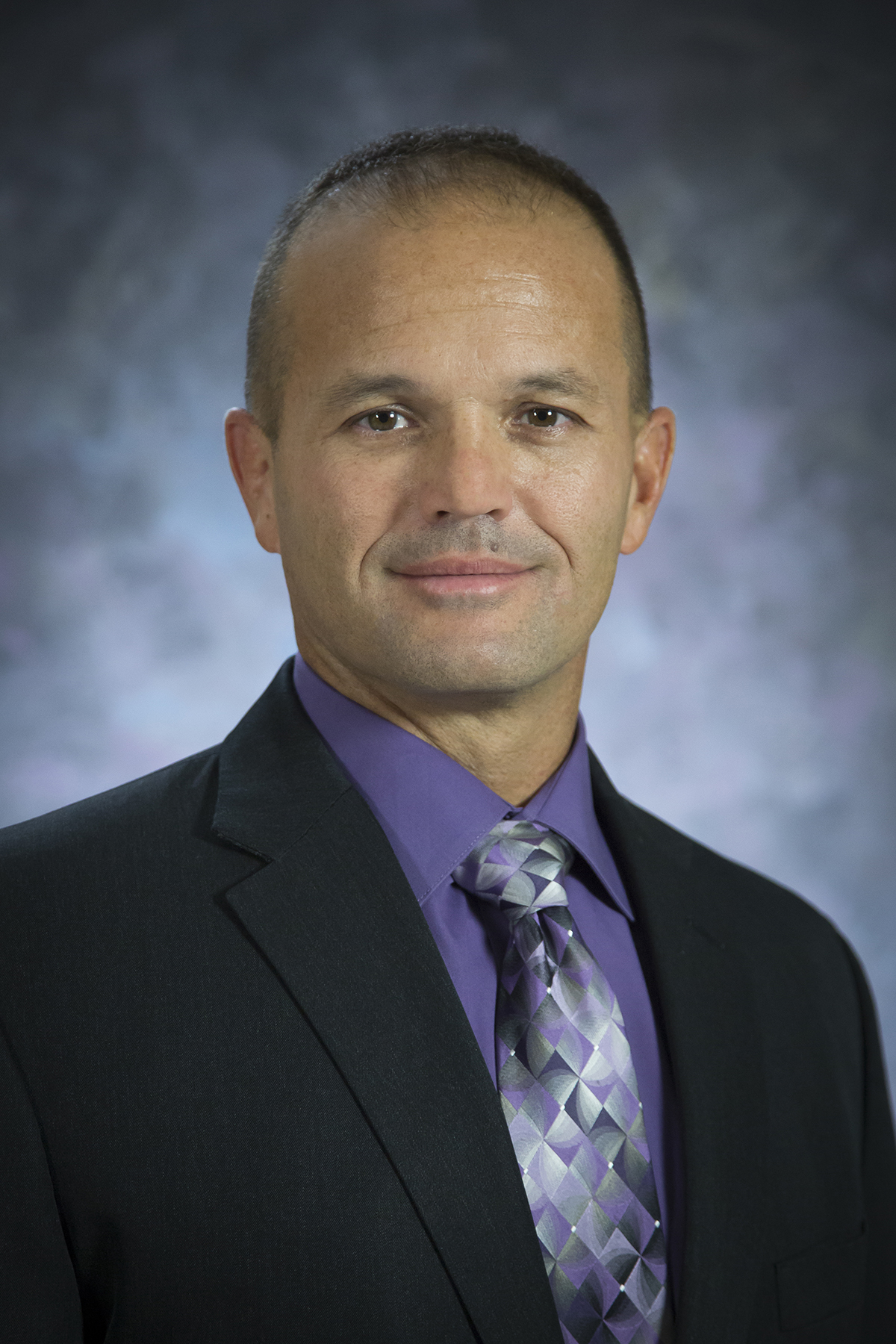 Terry Alger
Terry AlgerDirector, Powertrain Engineering
Southwest Research Institute
Fuels for Tomorrow’s Transport
Dr. Alger is the Director of the Automotive Propulsion Systems Department in the Powertrain Engineering Division and a Fellow of the Society of Automotive Engineers. His work at SwRI focuses on reducing fuel consumption and exhaust emissions from passenger cars. In addition to developing more efficient gasoline engines, Dr. Alger’s current research interests include ignition systems, abnormal combustion in gasoline engines, hybrid and electric vehicle powertrains, and fluids (fuels and lubricants) for advanced combustion concepts. In addition to his work at SwRI, Dr. Alger serves as a consultant to the Army Science Board and as a member of the ME Advisory Board at the United States Military Academy.
Dr. Alger graduated from the US Military Academy as a Distinguished Cadet in 1992 and was commissioned as a 2nd Lieutenant in the US Army Corps of Engineers. During his five years in the Army, Dr. Alger served as a platoon leader and task force engineer for the 3/325 th Infantry (Airborne Battalion Combat Team) and participated in operations in Bosnia and Africa. Prior to joining SwRI, Dr. Alger earned his MSE and PhD degrees at The University of Texas at Austin and worked at Ford Motor Company’s Research and Advanced Engineering Division.
 Richard Amato
Richard Amato
Director
ATI Energy and ATI Mobility
Energy Development in Emerging Economies: Legal Challenges
Richard Amato is the Advisor to ATI Energy and Mobility companies. He founded the ATI Clean Energy Incubator in 2001, and currently heads up IC² Institute global energy initiatives, including the World Bank Climate Innovation Center Program in Ghana, Kenya, South Africa, and Vietnam. Amato is also the Founder, President and CEO of Venti Energy, a renewable development company dedicated to increasing the supply of clean and reliable energy. He resides as a current or past board member of CEI, CEA, CEDC, RMC, TXROSE, TXSES, TREIA and the Wind Coalition. Additionally, Amato speaks at conferences around the world including India, Malaysia, Denmark, Norway, Japan, Italy, and Kazakhstan. He earned his MBA in Entrepreneurship and Management from UT Austin and BS in Mechanical Engineering from Texas A&M.
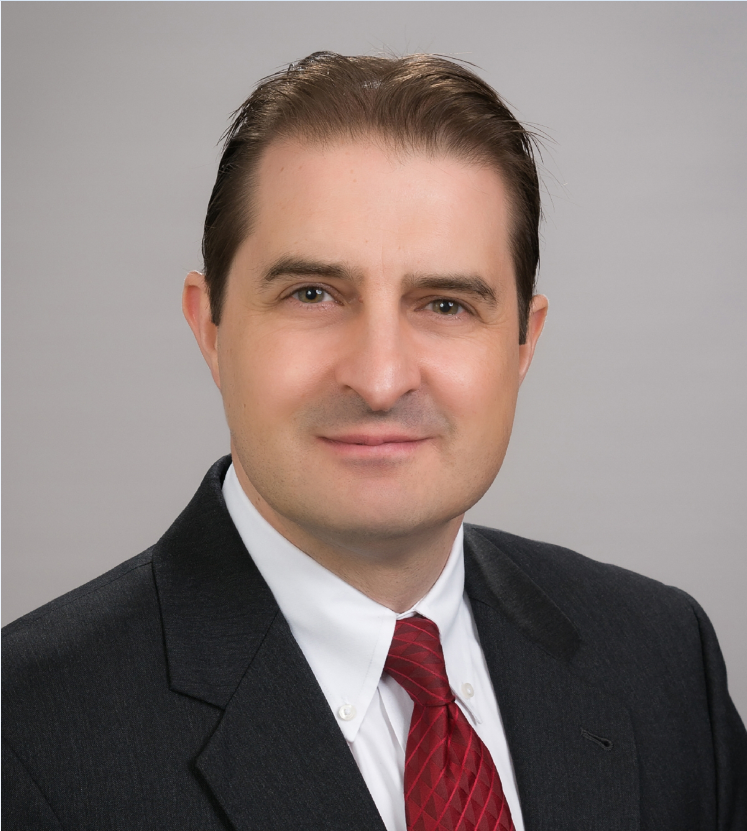 Tristan Aspray
Tristan Aspray
Vice President, Research and Technology Development
ExxonMobil Upstream Integrated Solutions Company
Energy Tradeoffs: A Better Understanding of the Issues Shaping the World’s Energy Needs
Trıstan Aspray was educated in England, receiving a bachelor’s degree in Geological Sciences from Cambridge University in 1992 and a master’s degree in Basin Evolution and Dynamics from London University in 1993.
Trıstan joined Esso Exploration and Productıon UK Limited in 1994 as a Petroleum Geologist, workıng on Central North Sea fields. In subsequent assignments he has worked on exploration and development projects in a variety of areas, including the Gulf of Mexico, Libya, Egypt, Vietnam and Russia.
In 2008, he became an Upstream Advisor to ExxonMobil’s Management Committee in Dallas, Texas. Tristan was then seconded into XTO Energy, which was acquired by ExxonMobil in 2010. In September 2011, he returned to the United Kingdom to take on the role of Europe Exploration Operations Manager, in which his portfolio ranged from onshore shale gas in Germany and Poland to deep water exploration in the Romanian Black Sea.
Tristan became Vice President of Business Development, ExxonMobil Exploration Company, in May 2014. In July 2015, he assumed the role of Vice President of Europe/Russia/Caspian, ExxonMobil Exploration Company, and added the Asia Pacific/Middle East regions to his area of responsibility in 2016. In April 2019, Tristan moved into his current role of Vice President, Research and Technology Development for the Upstream.
Tristan is a member of the Geological Society and the American Association of Petroleum Geologists. He also serves on the advisory boards of the Cambridge Arctic Shelf Programme (CASP) and the University of Texas Energy Institute.
Tristan is married with two children, and his interests include hiking, kayaking, history, cycling and wildlife photography.
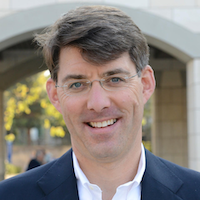 Jeffrey Ball
Jeffrey Ball
Scholar-in-Residence and Lecturer
Steyer-Taylor Center for Energy Policy and Finance at Stanford University and Stanford Law School
Will Technology Save the Day? Optimist and Realist Perspectives
Jeffrey Ball (@jeff_ball) writes about energy and the environment. He is the scholar-in-residence at Stanford University’s Steyer-Taylor Center for Energy Policy and Finance, a lecturer at Stanford Law School, and a nonresident senior fellow at the Brookings Institution.
Ball’s stories and essays have appeared in Fortune, Foreign Affairs, Mother Jones, The Atlantic, The New York Times, The New Republic, The Wall Street Journal, and elsewhere. Ball came to Stanford in 2011 from The Wall Street Journal, where he was the paper’s environment editor and spent more than a decade as a reporter and a columnist. He has reported from five continents and more than 15 countries.
In 2019, Ball won a New York Press Club Award for Journalism and was a finalist for a Gerald Loeb Award for Distinguished Business and Financial Journalism for “Lone Star Rising,” a 2018 Fortune story he wrote on a new oil boom roiling West Texas’ iconic Permian Basin. In 2015, he won the Society of American Business Editors and Writers’ top energy-writing prize for “The Drama of Mexico’s Black Gold,” a 2014 Fortune story on Mexico’s epic bid to reform its oil sector.
At the Stanford center, a joint initiative of the university’s law and business schools, Ball heads a project exploring the globalization of the clean-energy industry. It focuses on China’s crucial role in that push — including the global environmental implications of China’s Belt and Road Initiative. Ball was the primary author of The New Solar System, a comprehensive 2017 Stanford report on the global solar industry.
More about Ball’s writing and other work is at jeffreyball.net.
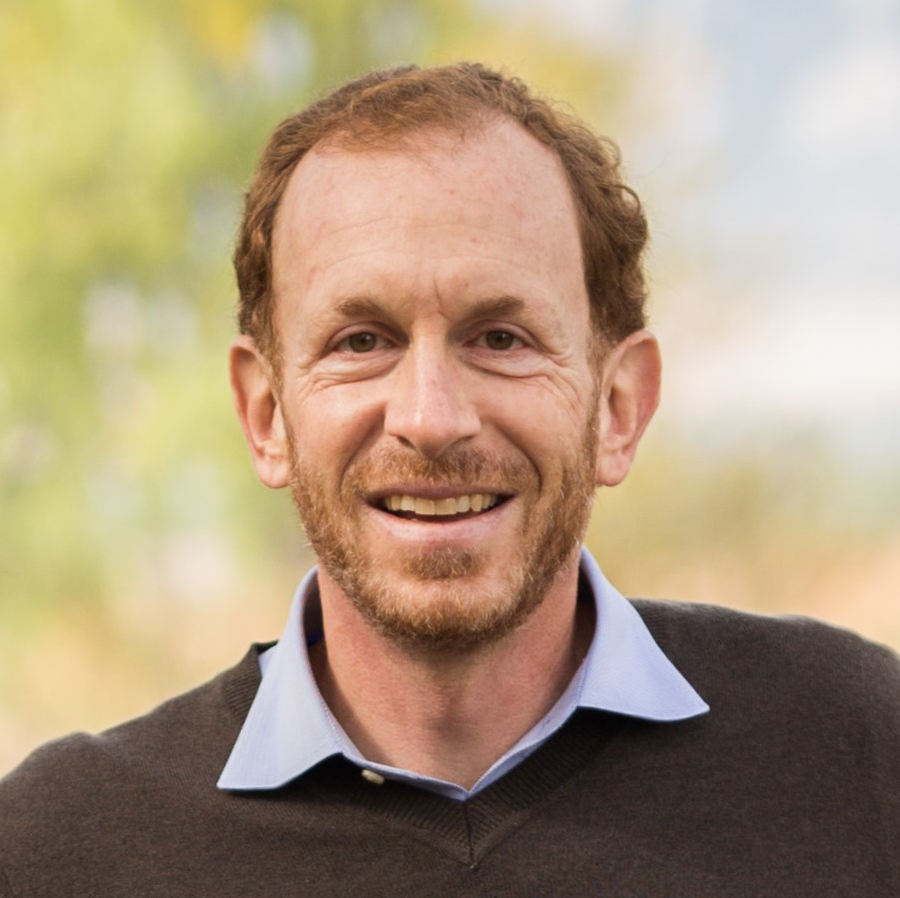 Morgan Bazilian
Morgan Bazilian
Professor and Director of the Payne Institute of Public Policy
Colorado School of Mines
Geopolitical Ramifications of the Energy Transition
Morgan Bazilian is the Director of the Payne Institute and a Professor of public policy at the Colorado School of Mines. Previously, he was lead energy specialist at the World Bank. He has over two decades of experience in the energy sector and is regarded as a leading expert in international affairs, policy and investment. He is a Member of the Council on Foreign Relations.
Dr. Bazilian holds two master’s degrees and a Ph.D. in areas related to energy systems and markets, and has been a Fulbright fellow. He holds, or has held, several academic affiliations including at Columbia University, Cambridge University, the Royal Institute of Technology of Sweden, the Center for Strategic and International Studies, and the International Institute for Applied Systems Analysis. He is on the editorial boards of Environmental Research Letters, Energy strategy Reviews, and Energy Research and Social Science. He has published more than 140 articles in learned journals. His book, Analytical Methods for Energy Diversity and Security is considered a seminal piece in the area of energy finance and security. His work has been published in, inter alia, Foreign Affairs, Foreign Policy, Nature, Science, and the Proceedings of the National Academy of Science.
Dr. Bazilian is a member of the World Economic Forum’s Global Advisory Council on Energy, as well as the Global Advisory Council of the Sustainable Finance Programme at Oxford University. Previously, he was a Deputy Director at the U.S. National Renewable Energy Laboratory (NREL) and a senior diplomat at the United Nations. Earlier in his career, he worked in the Irish Government as Principal Advisor to the Energy Minister, and was the Deputy CEO of the Irish National Energy Agency. He was also the European Union’s lead negotiator on low-carbon technology at the United Nations climate negotiations. Dr. Bazilian has testified before the U.S. Senate and the Irish Oireachtas on issues of energy security.
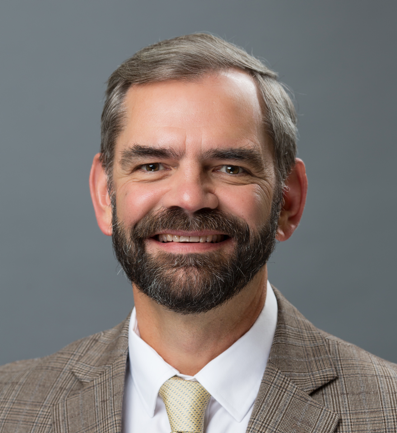 Fred Beach
Fred Beach
Lecturer
The University of Texas at Austin
Geopolitical Ramifications of the Energy Transition
Dr. Beach conducts research related to the interplay between the development of Energy Policy, Environmental Policy, and Technology Policy at the University of Texas at Austin. Dr. Beach also teaches a wide range of classes on Energy Technology Policy, International Energy Policy, and Energy Economics in the Cockrell School of Engineering, The LBJ School of Public Policy, The McCombs Business School, and the Jackson School of Geosciences.
Prior to joining The University of Texas at Austin, Dr. Beach served for twenty-five years in the United States Navy where he was a qualified Submariner, Naval Aviator, Surface Warfare Officer, and Acquisition Professional. Since retiring in 2003 he has also served as a consultant on defense-related topics for the U.S. Chief of Naval Operations Strategic Studies Group, MITRE, Naval Research Advisory Committee, Naval Research Laboratory, Defense Advanced Research Projects Agency, and the Defense Science Board.
Dr. Beach holds a Ph.D. from the LBJ School of Public Policy, University of Texas at Austin an M.S. in Physics from the Naval Postgraduate School, and a B.S. in Chemistry with a minor in Nuclear Engineering from the University of Oklahoma. He is also a graduate of the Defense Acquisition University and Certified Level III DoD Acquisition Professional and Program Manager.
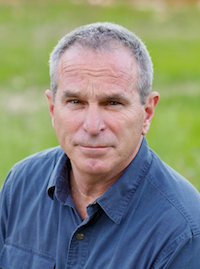 Robert Bryce
Robert Bryce
Author, journalist, and film producer
The USA’s Role and Importance in Global Energy Leadership
Robert Bryce is a Texas-based author and journalist. He has been covering the energy sector for three decades, during which he has covered everything from Enron’s bankruptcy and the digitization of drilling rigs to nuclear energy and the future of batteries. His articles have appeared in dozens of publications including the Wall Street Journal, New York Times, New York Post, and National Review. He is the author of several books including, most recently, Smaller Faster Lighter Denser Cheaper: How Innovation Keeps Proving the Catastrophists Wrong. He is also the producer of a new feature-length documentary film: Juice: How Electricity Explains the World. His sixth book, A Question of Power: Electricity and the Wealth of Nations, will be published in March 2020 by PublicAffairs. @pwrhungry
 Josh Busby
Josh Busby
Associate Professor of Public Affairs and a Distinguished Scholar at the Robert S. Strauss Center for International Security and Law
The University of Texas
The USA’s Role and Importance in Global Energy Leadership
Joshua Busby is a distinguished scholar at the Strauss Center, nonresident fellow with the Chicago Council on Global Affairs, and a senior research fellow at the Center for Climate & Security. Dr. Busby has published widely on climate change, global health, transnational advocacy movements and U.S. foreign policy for various think tanks and academic journals, including International Security, International Studies Quarterly, Security Studies and Perspectives on Politics. His first book, “Moral Movements and Foreign Policy,” was published by Cambridge University Press in 2010. His second book, “AIDS Drugs for All: Social Movements and Market Transformations,” with co-author Ethan Kapstein, was published by Cambridge University Press in 2013 and won the 2014 Don K. Price Award (the American Political Science Association’s award for the best book on science, technology and environmental politics). He was one of the lead researchers on a five-year, $7.6 million project funded by the Department of Defense called “Climate Change and African Political Stability” (CCAPS). He is the principal investigator of another DOD-funded project, “Complex Emergencies and Political Stability in Asia” (CEPSA) — a three-year, $1.9 million grant. Dr. Busby is a life member in the Council on Foreign Relations. He received his Ph.D. in political science in 2004 from Georgetown University.
 Clay Butler
Clay Butler
Chief Executive Officer
7X Energy
Will Technology Save the Day? Optimist and Realist Perspectives
As CEO, Clay oversees business development, operations, and investor relations for 7X Energy, where he continuously pushes 7X to be an innovation leader in the energy industry. For almost a decade before co-founding 7X in early 2016, Clay served as a managing partner of a leading law firm for renewable energy companies. There, he provided development support and legal services for over 5,000 MW of solar projects and 3,500 MW of wind projects around the world. During this time, Clay founded a company to build a software solutions platform to utilize Big Data analytics to streamline and accelerate the utility-scale solar development process; that software functionality continues to expand and is now exclusively licensed by 7X.
In addition to Clay’s executive roles, he served for two years as an electric utility commissioner for the City of Austin, overseeing the city’s electric utility, Austin Energy.
Clay holds a JD from St. Mary’s University School of Law and a BA from Texas State University. He also spent four years in the Marine Corps prior to college as an infantryman–Semper F
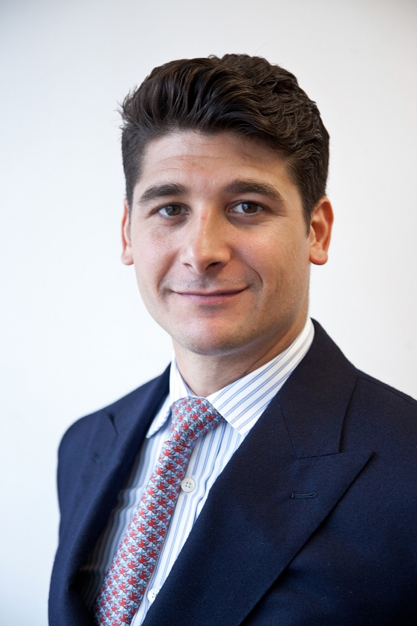 Etienne Cadestin
Etienne Cadestin
Founder and Global Chief Executive Officer
Longevity Partners
The USA’s Role and Importance in Global Energy Leadership
Mr Etienne Cadestin is the founder and global CEO of Longevity Partners, an award-winning independent property advisory firm founded in 2015 to support businesses in the transition to a low carbon economy across the world.
Etienne worked at Knight Frank, JLL and the United Nations Environment Programme (the leading global environmental authority that sets the global environmental agendas). He has more than a decade of experience in sustainable property investment and strategy and currently advises some of the largest property investment companies in the world. Etienne won several awards as the Future of Real Estate and Property Rising Star and was nominated for numerous other awards as one of the most active young leaders in the sustainability and real estate industries. He regularly speaks at high-level events, giving his vision for smart cities, carbon neutral buildings, wellbeing in the work place and the future of the real estate industry.
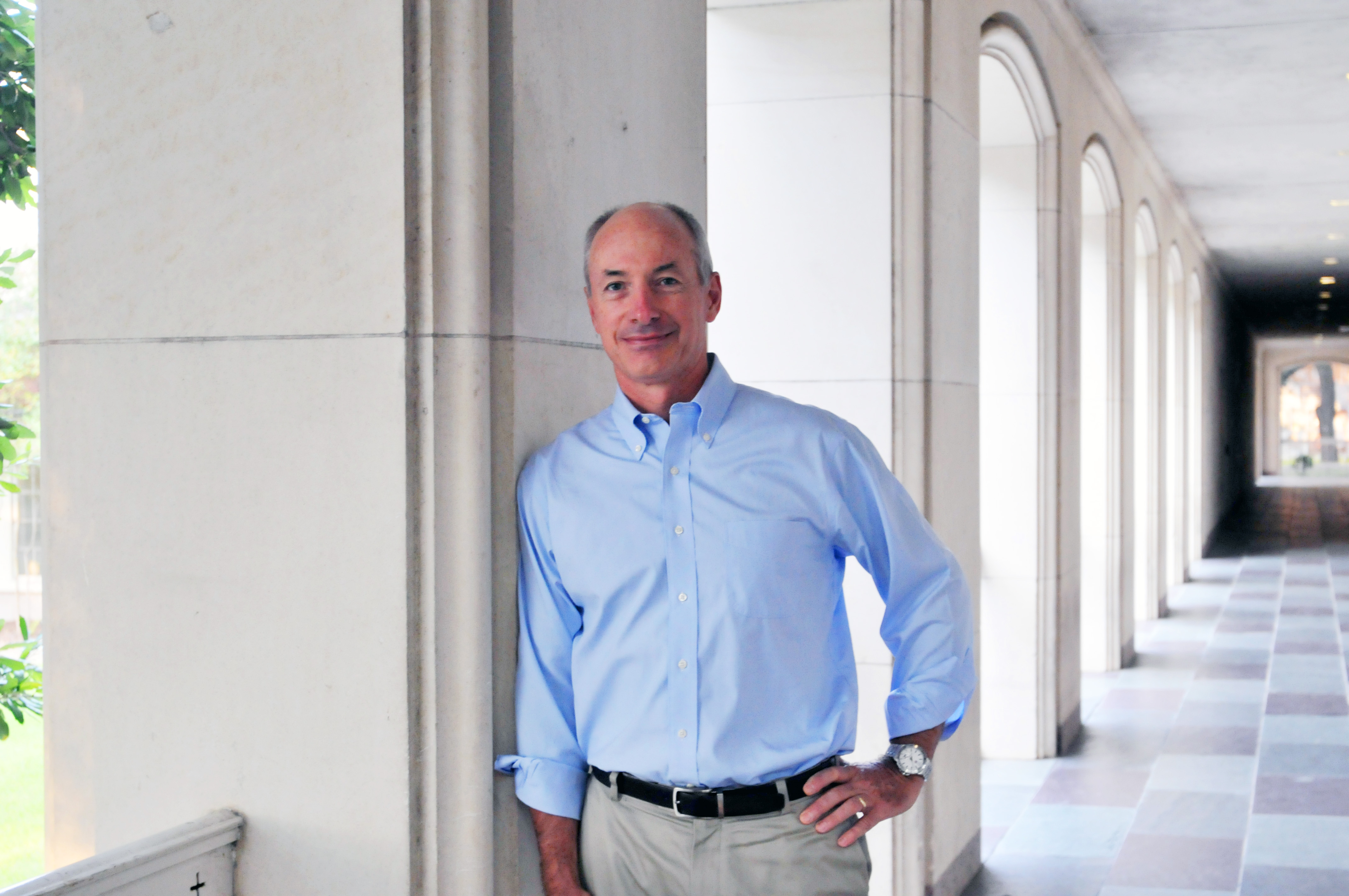 Richard Chuchla
Richard Chuchla
Director, Energy and Earth Resources Graduate Program
The University of Texas at Austin
Making Minerals Great Again
A geologist by training, with an undergraduate degree from Cornell and a master’s from the Jackson School of Geosciences, Richard started in base and precious metals, moved to coal, and then oil and gas, working in exploration, development and research. The assignments took him from Tucson, Arizona-where he accepted his first industry job two days after earning his Master’s-to Europe, Latin America and West Africa. It was then back to the United States, where he spent the better part of his last 10 years launching ExxonMobil’s unconventional resources program including two years at the corporate headquarters in Dallas advising the Management Committee and CEO, Rex Tillerson. Just retired from industry, Chuchla is applying his broad experience to his new position as the Director of the Jackson School’s Energy and Earth Resources (EER) master’s program.
 Reginald Devaul
Reginald Devaul
Sr. Structuring Analyst
BP NAGP
Energy Tradeoffs: A Better Understanding of the Issues Shaping the World’s Energy Needs
Reginald is a senior structuring analyst with 22 years of experience, including 14 years of experience at BP Oil and Gas. He also has extensive experience in commodity risk analysis, financial analysis, and financial planning. Reginald graduated from Jackson State University with a bachelors in business administration in accounting, and then went on to get his master’s in business administration in finance at the University of New Orleans. Reginald has a wide portfolio, working at staple Houston companies such as BP NAGP, Entergy, and Texaco.
 Roderick G. Eggert
Roderick G. Eggert
Viola Vestal Coulter Foundation Chair in Mineral Economics
Colorado School of Mines
Making Minerals Great Again
Roderick G. Eggert is Viola Vestal Coulter Foundation Chair in Mineral Economics at Colorado School of Mines, where he has taught since 1986. He also is Deputy Director of the Critical Materials Institute, an energy innovation hub (research consortium, led by the Ames Laboratory) established by the U.S. Department of Energy in 2013, to accelerate innovation in energy materials.
His research and teaching focus on mineral economics and public policy. He chaired the U.S. National Research Council committee that wrote the 2008 book Minerals, Critical Minerals, and the US Economy (National Academies Press).
He has a B.A. in earth sciences from Dartmouth College, a M.S. in geochemistry and mineralogy from Penn State University, and a Ph.D. in mineral economics also from Penn State.
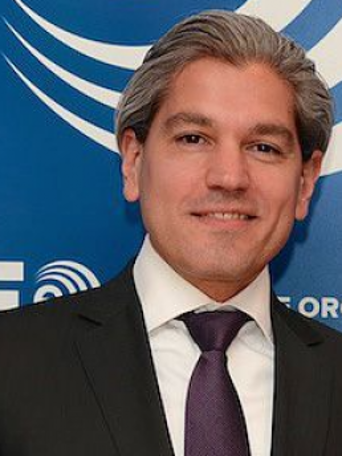 Aldo Flores-Quiroga
Aldo Flores-Quiroga
Former Deputy Secretary of Energy of Mexico and Visiting Professor at the LBJ School of Public Affairs
The University of Texas
The USA’s Role and Importance in Global Energy Leadership
Aldo Flores-Quiroga is former deputy secretary of energy for hydrocarbons at Mexico’s Ministry of Energy (2016–18), where he led a team of more than 180 government officials to implement the historic opening of Mexico’s hydrocarbons sector. He launched an oil exploration strategy and production auctions, helped liberalize Mexico’s markets for refined products and natural gas, helped create strategic inventories for gasoline, diesel and natural gas, and negotiated Mexico’s role in the unprecedented OPEC-Non OPEC pact to stabilize oil markets.
Previously, Flores-Quiroga was secretary general of the International Energy Forum (IEF) (2012–17), assistant secretary for international affairs at Mexico’s Ministry of Energy (2007–11) and assistant secretary for bilateral economic relations at the Ministry of Foreign Affairs (2001–05). He represented Mexico at the International Atomic Nuclear Agency (IAEA), the Nuclear Energy Agency (NEA), the United Nations Industrial Development Organization (UNIDO), the International Energy Forum (IEF), the Latin American and Caribbean Energy Organization (OLADE), and the International Renewable Energy Agency (IRENA). He served as the executive secretary at the National Institute of Public Administration, as the director general for international affairs for Mexico’s Secretariat of energy, and as the director general for bilateral affairs at Mexico’s Secretariat of Foreign Affairs.
He taught courses in international political economy, comparative politics, economic theory, public policy and economic development at the School of Politics and Economics of the Claremont Graduate University in California (1996–2009). Flores-Quiroga has published books and articles in English and Spanish on Mexican trade, exchange rate and energy policy, and has been featured on CNN, BBC, Bloomberg, CNBC and other media outlets.
 Samantha Gross
Samantha Gross
Fellow, Foreign Policy, Energy Security and Climate Initiative
Brookings Institution
Geopolitical Ramifications of the Energy Transition
Samantha Gross is a Fellow in Foreign Policy at the Brookings Institution. Her work is focused on the intersection of energy, environment, and policy, including climate policy and international cooperation, energy geopolitics, and global energy markets.
Ms. Gross has more than 20 years of experience in energy and environmental affairs. She has been a Visiting Fellow at the King Abdullah Petroleum Studies and Research Center, where she authored work on clean energy cooperation and on post-Paris climate policy. She was Director of the Office of International Climate and Clean Energy at the U.S. Department of Energy. In that role she directed U.S. activities under the Clean Energy Ministerial, including the secretariat and initiatives focusing on clean energy implementation and access and energy efficiency. Prior to her time at the Department of Energy, Ms. Gross was Director of Integrated Research at IHS CERA. She managed the IHS CERA Climate Change and Clean Energy forum and the IHS relationship with the World Economic Forum. She has also worked at the Government Accountability Office on the Natural Resources and Environment team and as an engineer directing environmental assessment and remediation projects.
Ms. Gross holds a BS in Chemical Engineering from the University of Illinois, a MS in Environmental Engineering from Stanford University, and an MBA from the University of California at Berkeley
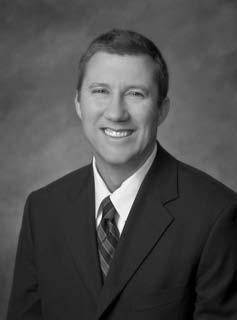 Paul Hudson
Paul Hudson
President
General Infrastructure
Opening Keynote: Emergent or Ephemeral: Macro Themes in Power
In September 2017, Mr. Hudson was retained (as president of a wholly owned subsidiary, General Infrastructure) to serve as a Senior Advisor to Blackstone. In this role, Mr. Hudson’s recent focus has been on seeking opportunities to invest capital behind emerging themes within the sector.
Previously, formative career experiences for Mr. Hudson have included serving as Director of Policy to the Texas Governor, as Chairman of the Texas Public Utility Commission, on the ERCOT Board of Directors, as an appointee to the DOE’s Electricity Advisory Committee, as an independent director to various non and for-profit board of directors, and on a variety of NARUC and intergovernmental committees.
Paul Hudson has spent over two decades working to develop effective, robust, and reliable power sector infrastructure and remains fascinated with the extraordinary dynamism within the sector.
 William Inboden
William Inboden
Executive Director and William Powers, Jr. Chair
William P. Clements, Jr. Center for National Security at the University of Texas-Austin
Geopolitical Ramifications of the Energy Transition
William Inboden is Executive Director and William Powers, Jr. Chair at the William P. Clements, Jr. Center for National Security at the University of Texas-Austin. He also serves as Associate Professor at the LBJ School of Public Affairs, Distinguished Scholar at the Robert S. Strauss Center for International Security and Law, and Editor-in-Chief of the Texas National Security Review. Inboden’s other current roles include Associate with the National Intelligence Council, Member of the CIA’s Historical Review Panel, Member of the State Department’s Historical Advisory Council, and Non-Resident Fellow with the German Marshall Fund of the United States. Previously he served as Senior Director for Strategic Planning on the National Security Council at the White House, where he worked on a range of foreign policy issues including the National Security Strategy, strategic forecasting, democracy and governance, contingency planning, counter-radicalization, and multilateral institutions and initiatives. Inboden also worked at the Department of State as a Member of the Policy Planning Staff and a Special Advisor in the Office of International Religious Freedom, and has worked as a staff member in both the United States Senate and the House of Representatives.
Inboden has also served as Senior Vice President of the London-based Legatum Institute, and as a Civitas Fellow at the American Enterprise Institute. He is a life member of the Council on Foreign Relations, a contributing editor to Foreign Policy magazine, and his commentary has appeared in numerous outlets including the Wall Street Journal, New York Times, Washington Post, Los Angeles Times, USA Today, Politico, Weekly Standard, NPR, CNN, BBC, and Sky News. He has lectured widely in academic and policy settings, testified before the U.S. House Armed Services Committee, and received numerous research and professional development fellowships. Inboden is the author of Religion and American Foreign Policy, 1945-1960: The Soul of Containment (Cambridge University Press), co-editor of The Last Card: Inside George W. Bush’s Decision to Surge in Iraq (Cornell University Press), and has published numerous articles and book chapters on national security, American foreign policy, and American history. Professor Inboden has received multiple teaching awards including recognition as a “Texas 10” by the Texas Exes Alumni Association, and his classes Presidential Decision-making in National Security and Ethics & International Relations have been selected in recent years as the “Best Class in the LBJ School” and “Class Most Likely to Challenge Your Assumptions.” His current research includes a book on the Reagan Administration’s national security strategy and policy, titled The Peacemaker: The Reagan Presidency from War to Peace. Inboden received his Ph.D. and M.A. degrees in history from Yale University, and his A.B. in history from Stanford University.
Professor Inboden can be reached at inboden@austin.utexas.edu.
 Karr Ingham
Karr Ingham
Economist, Petroleum Economist, and Executive Vice-President
Texas Alliance of Energy Producers
Policy and Business Implications of a Green New Deal
Karr Ingham is a professional economist who lives and works in Amarillo, Texas. He is the owner of Ingham Economic Reporting, an economic analysis and research firm that specializes in the indexing and tracking of regional and metro area economies.
Ingham has a career history in agriculture broadcasting, public affairs and politics. He served as District Director and Legislative Aide to then U.S. Congressman Beau Boulter, and was the Congressman’s principal liaison to the Panhandle and West Texas agriculture community. He also performed agriculture budget policy analysis for the Congressman, then a member of the House Budget Committee. The regional metro analysis concept has been expanded to include regional energy production economies with the establishment of the Texas Permian Basin Petroleum Index, the Texas PetroIndex, a statewide index-based analysis of the state’s energy production economy produced monthly for the Texas Alliance of Energy Producers. In addition, he also consults on economic and analytical policy matters and conducts various industry-related economic impact studies in Texas.
Ingham is member of the US Association for Energy Economics (USAEE), and holds his affiliation with the Houston chapter of that organization. He also serves on the natural gas supply and demand panel for the Independent Petroleum Association of American (IPAA), and is a frequent commentator in various local and statewide media outlets with regard to oil & gas prices and markets.
 Bob Jensen
Bob Jensen
Professor Emeritus, School of Journalism
The University of Texas at Austin
Will Technology Save the Day? Optimist and Realist Perspectives
Robert Jensen is Emeritus Professor in the School of Journalism at the University of Texas at Austin, a founding board member of the Third Coast Activist Resource Center, and part of the team developing Ecosphere Studies at The Land Institute in Salina, KS. He is the author of The End of Patriarchy: Radical Feminism for Men (Spinifex Press, 2017). Jensen’s other books include Plain Radical: Living, Loving, and Learning to Leave the Planet Gracefully (Counterpoint/Soft Skull, 2015); Arguing for Our Lives: A User’s Guide to Constructive Dialogue (City Lights, 2013); All My Bones Shake: Seeking a Progressive Path to the Prophetic Voice, (Soft Skull Press, 2009); Getting Off: Pornography and the End of Masculinity (South End Press, 2007); The Heart of Whiteness: Confronting Race, Racism and White Privilege (City Lights, 2005); Citizens of the Empire: The Struggle to Claim Our Humanity (City Lights, 2004); and Writing Dissent: Taking Radical Ideas from the Margins to the Mainstream (Peter Lang, 2002). Jensen is also co-producer of the documentary film “Abe Osheroff: One Foot in the Grave, the Other Still Dancing” (Media Education Foundation, 2009), which chronicles the life and philosophy of the longtime radical activist.
 Carey King
Carey King
Assistant Director, Research Scientist
The University of Texas Energy Institute
Will Technology Save the Day? Optimist and Realist Perspectives
Dr. Carey W King performs interdisciplinary research related to how energy systems interact within the economy and environment as well as how our policy and social systems can make decisions and tradeoffs among these often competing factors. The past performance of our energy systems is no guarantee of future returns, yet we must understand the development of past energy systems. Carey’s research goals center on rigorous interpretations of the past to determine the most probable future energy pathways. Carey is Research Scientist at The University of Texas at Austin and Assistant Director at the Energy Institute. He also has appointments within the Jackson School of Geosciences and the McCombs School of Business. He has both a B.S. with high honors and Ph.D. in Mechanical Engineering from the University of Texas at Austin. He has published technical articles in the academic journals Environmental Science and Technology, Environmental Research Letters, Nature Geoscience, Energy Policy, Sustainability, and Ecology and Society. He has also written commentary for American Scientist and Earth magazines as well as major newspapers such as the The Hill, Dallas Morning News, Houston Chronicle, and Austin American-Statesman.
 Kara Kockelman
Kara Kockelman
Dewitt Greer Centennial Professor of Transportation Engineering
The University of Texas at Austin
Fuels for Tomorrow’s Transport
Dr. Kara Kockelman is the Dewitt Greer Professor of Civil, Architectural & Environmental Engineering at the University of Texas at Austin. She is a registered professional engineer and holds a PhD, MS, and BS in civil engineering, a master’s of city planning, and a minor in economics from the University of California at Berkeley. Dr. Kockelman has been a professor of transportation engineering at the University of Texas at Austin for the past 22 years. She is primary and co-author of over 150 journal articles (and two books) across a variety of subjects, nearly all of which involve transportation-related data analysis. Her primary research interests include planning for shared and autonomous vehicle systems, the statistical modeling of urban systems (including models of travel behavior, trade, and location choice), energy and climate issues (vis-à-vis transport and land use decisions), the economic impacts of transport policy, and crash occurrence and consequences.
 David Lear
David Lear
Vice President, Corporate Sustainability
Dell Technologies
Energy Leadership: New Visions for a New Era
David Lear serves as the Vice President of Dell’s sustainability programs, and works to create long-term stakeholder value and opportunities by integrating economic, social, and environmental responsibility into Dell’s core business strategies. His team engages key stakeholders including customers, NGOs, regulators, industry groups, and agencies to collaborate on global policy and standards development. This includes managing strategic giving and community partnerships that demonstrate the enabling power of technology to drive both business and sustainability outcomes.
David joined Dell in 2006 as Director of Product Safety and Environmental Affairs, responsible for the delivery of Dell global product compliance programs. Previously, Lear served in various roles in design and manufacturing in the Test & Measurement industry, where he specialized in the development of product technologies. David holds a BS in Chemistry and Biology from Missouri State University, and a MBA from the University of Indianapolis.
 Benjamin Leibowicz
Benjamin Leibowicz
Assistant Professor in the Graduate Program in Operations Research and Industrial Engineering
Department of Mechanical Engineering at the University of Texas at Austin
Policy and Business Implications of a Green New Deal
Dr. Benjamin D. Leibowicz is an Assistant Professor in the Graduate Program in Operations Research and Industrial Engineering at The University of Texas at Austin. Dr. Leibowicz develops mathematical models and methods to improve decision making on energy and environmental policy and strategy issues. His primary research interests are energy systems, energy and climate policy analysis, integrated assessment modeling, sustainable cities, technological change, and innovation. He approaches these topics from an interdisciplinary perspective and develops modeling frameworks that combine methods from optimization, economics, game theory, stochastic control, and general equilibrium.
Dr. Leibowicz’s ongoing research projects are funded by federal agencies, industrial corporations, private foundations, and national laboratories, among others. He currently serves on the Editorial Board of Energy Sources, Part B: Economics, Planning, and Policy, and on the Steering Committee for the City of Austin’s 2020 revision of its Community Climate Plan. He has served for four years as a Cluster Chair or Co-Chair at the INFORMS Annual Meeting.
Prior to joining UT Austin, Dr. Leibowicz received both PhD and MS degrees in Management Science and Engineering from Stanford University, and earned a BA in Physics with a minor in Economics from Harvard University. While working toward his PhD, he was a research fellow in the Energy and Transitions to New Technologies groups at the International Institute for Applied Systems Analysis.
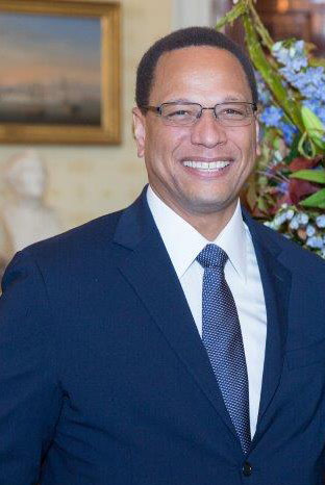 Sean T. Long
Sean T. Long
Founder, President & CEO
Endeavor Energy
Energy Development in Emerging Economies: Legal Challenges
Mr. Sean T. Long, Founder, President and Chief Executive Officer of Endeavor Energy Holdings LLC, has over 22 years and over $14 billion worth of development, construction, financing, and management experience in energy infrastructure industries. Endeavor Energy, now considered one of the leading power development and generation companies in Africa, is a U.S.- headquartered, privately-owned company dedicated to acquiring and developing power generation facilities in Africa. Since it was founded in 2013, Sean has led Endeavor’s growth from 4 employees and no assets to five years later where Endeavor has under construction (once fully built) $1.6 billion, over 670MW of power generation assets with over $3.9 billion, ~2,250MW of power generation projects under development.
Sean is former Senior Vice President and head of Enron Corp’s business activities in Africa, a Fortune 10 company at the time. Whilst at Enron, Sean lead the successful development of Nigeria’s first IPP in 1999, a $150 million, 300MW gas-fired power project, which delivered power in Nigeria for 20 years. Sean also was involved in the development of the $400 million, 865km Pande Gas Pipeline Project until it was sold to Sasol. The pipeline still delivers natural gas to South Africa today.
Sean has served on various private company boards and executive management committees, including that of Endeavor and its various subsidiaries. Sean also sits on the board of the Business Council for International Understanding, a not-for-profit group designed to improved business relationships between US companies doing business outside of the United States, as well as, Wake Forest University’s PAC which is a committee designed to help Wake Forest raise capital for and improve its athletic program. Sean also served as an Officer in the United States Army as a Captain.
He earned a Bachelor of Science degree in Computer Engineering (a specialty electrical engineering degree) from the United States Military Academy at West Point in 1987 and later earned his Juris Doctorate from Columbia University School of Law in 1993. Mr. Long is admitted to the Bar of the State of New York since 1993.
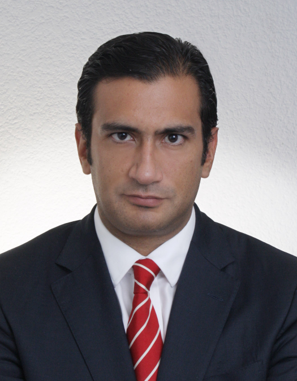 José María Lujambio
José María Lujambio
Energy Practice Director
Cacheaux, Cavazos & Newton
Energy Development in Emerging Economies: Legal Challenges
José María Lujambio is a partner at CCN, where he heads the energy practice from his office in Austin, Texas. Since joining the firm in 2014 his work with clients has included regulatory support to utility-scale renewable energy projects; enablement of qualified suppliers and traders to participate in the wholesale electricity market; negotiation of several kinds of energy procurement contracts, and advice in the midstream and downstream regulation of natural gas and refined products, for U.S. companies doing business in Mexico.
Previously, he worked for many years in the Mexican government; from 2009 to 2012, he served as General Legal Counsel of the Mexican Energy Regulatory Commission, where he was responsible for leading the implementation of Mexico’s 2008 energy reform, in the renewable energy and gas sectors. Also, from 2005 to 2009, he worked as an attorney within the Legal Counsel’s Office of Mexico’s President, focusing on legislation and presidential rules, and constitutional affairs.
In the academic field, in 2014 Lujambio obtained a Master of Laws (LL.M.) degree, with energy concentration, from the University of Texas at Austin. In 2013 he coordinated the energy research and networking agenda of the Center of Research for Development (CIDAC), with US-AID funds. He obtained a Master of Fundamental Rights degree from the University Carlos III of Madrid, Spain, back in 2003. In 2002 he received his Law degree from the Autonomous Technological Institute of Mexico (ITAM) in Mexico City.
Lujambio has published several essays and articles on energy regulation and constitutional law topics, and is a member of the International Society for Mexico Energy, the Gulf Coast Power Association, and the Mexican Lawyers Bar.
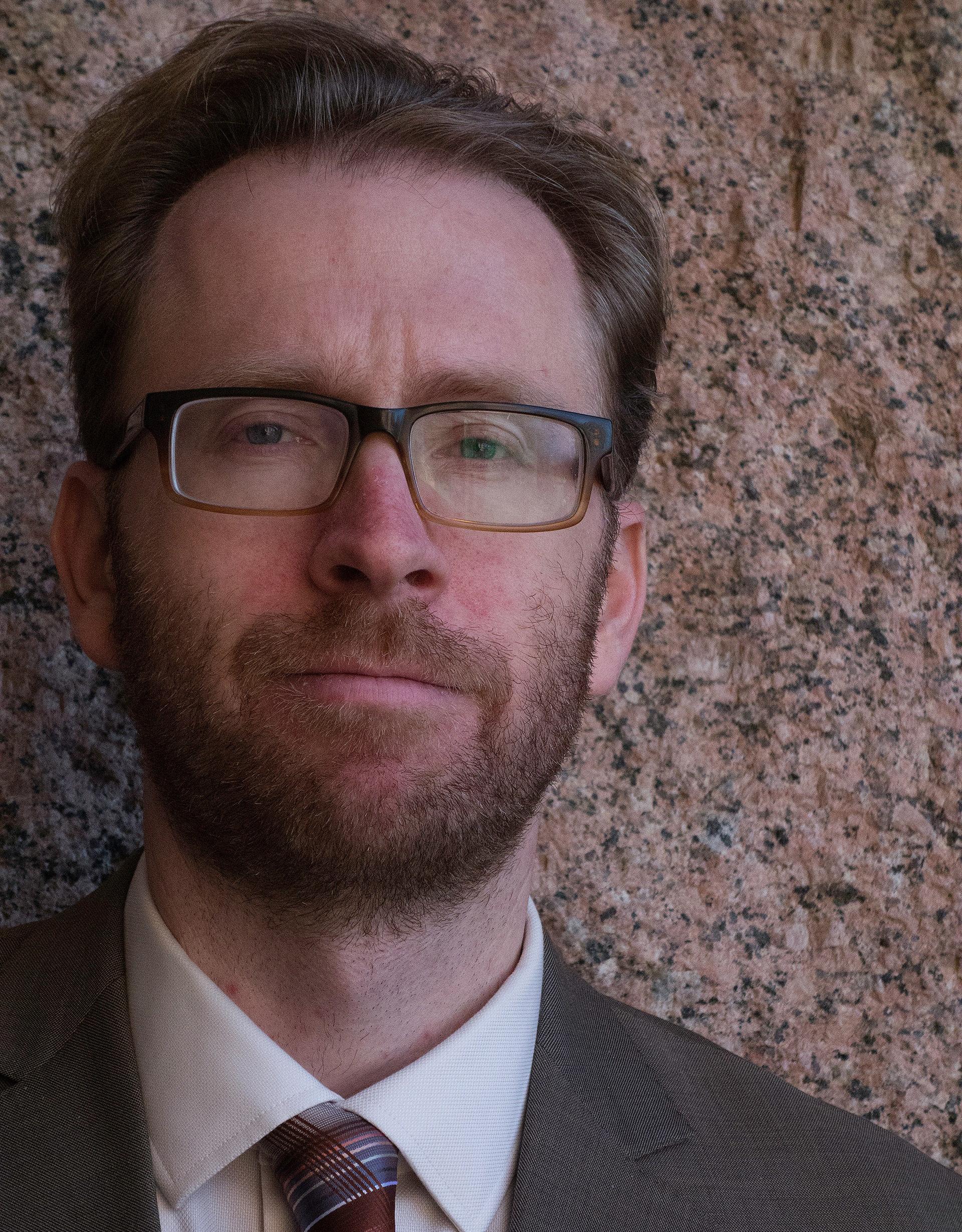 Luke Metzger
Luke Metzger
Executive Director
Environment Texas
Policy and Business Implications of a Green New Deal
As the executive director of Environment Texas, Luke is a leading voice in the state for clean air, clean water, clean energy and open space. Luke has led successful campaigns to win permanent protection for the Christmas Mountains of Big Bend; to compel Exxon, Shell and Chevron Phillips to cut air pollution at four Texas refineries and chemical plants; and to boost funding for water conservation and state parks. The San Antonio Current has called Luke “long one of the most energetic and dedicated defenders of environmental issues in the state.” He has been named one of the “Top Lobbyists for Causes” by Capitol Inside, received the President’s Award from the Texas Recreation and Parks Society for his work to protect Texas parks, and was chosen for the inaugural class of “Next Generation Fellows” by the Robert S. Strauss Center for International Security and Law at UT Austin. Luke, his wife, son and daughters are working to visit every state park in Texas.
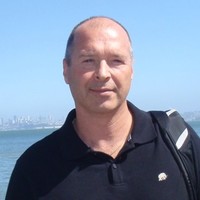 Garry Morehead
Garry Morehead
Surface Excellence, Assurance & Development Manager
Shell Unconventionals (Shales)
Energy Tradeoffs: A Better Understanding of the Issues Shaping the World’s Energy Needs
Garry leads a team of Professional and Subject Matter Experts (SME’s) responsible for Technical support of all surface engineering disciplines for Shell’s Unconventionals business in the Americas, which produces roughly 400K bdoe. The team is composed of Electrical, Chemical, Process, and Mechanical Engineering disciplines along with Production Technology, Production Chemistry, Materials and Corrosion, Inspection, Operations readiness, Measurement, Drafting, Instrumentation & Controls to name a few. The team develops and executes the Annual Assurance plans for Shell Unconventionals which operates in 5 locations in US, Canada, and Argentina. Garry has worked over 27 years for Shell Group including roles in Shell Pipeline (SPLC), Supply and Distribution (SD), Lubricants Supply Chain (LSC), and currently in Upstream Unconventionals (UPU). His career began in SPLC as a Corrosion Technician. He held roles in S&D included Tank Coordinator, Terminal Superintendent, and Complex Manager. For LSC, Plant manager at Vicksburg MS Lube Plant, LSC Business Development manager roles Globally and in Latin America. He was the Houston Lubricants Plant manager from 2012 to 2018, which is the largest lubes blending and packaging plant in the world. He began his current role in May 2018. Garry earned his Associates Degree in Corrosion Technology from Kilgore College, a Bachelor of Business Administration from LeTourneau University, a Master of Business Administration from Southern Methodist University, and University of Texas McCombs School of Business Supply Chain Management Certificate. Garry lives in Houston and has 3 children. Garry enjoys, exercising, live music venues, fast cars, and cooking.
 Varun Rai
Varun Rai
Director
University of Texas Energy Institute
Energy Leadership: New Visions for a New Era
Dr. Varun Rai is an Associate Professor in the LBJ School of Public Affairs and in the Department of Mechanical Engineering at the University of Texas at Austin, where he directs the Energy Systems Transformation Research Group (aka “Rai Group”). His interdisciplinary research – delving with issues at the interface of energy systems, complex systems, decision science, and public policy – focuses on studying how the interactions between the underlying social, behavioral, economic, technological, and institutional components of the energy system impact the diffusion of energy technologies. Over the last 15 years, his research has applied various analytical lenses to study technologies and policies in carbon capture and storage (CCS), fuels cells, oil & gas, plug-in hybrid vehicles (PEVs), and solar photovoltaics (PV). He has presented at several important forums, including the United States Senate Briefings, Global Intelligent Utility Network Coalition, and Global Economic Symposium, and his research group’s work has been discussed in The New York Times, The Wall Street Journal, Washington Post, and Bloomberg News, among other venues. He was a Global Economic Fellow in 2009 and holds the Elspeth Rostow Centennial Fellowship at the LBJ School. During 2013-2015 he was a Commissioner for the vertically-integrated electric utility Austin Energy. In 2016 the Association for Public Policy Analysis & Management (APPAM) awarded him the David N. Kershaw Award and Prize, which “was established to honor persons who, at under the age of 40, have made a distinguished contribution to the field of public policy analysis and management.” He received The Eyes of Texas Excellence Award, also in 2016, for making “noteworthy contributions to the UT community.” Dr. Rai has held the position of the Associate Dean for Research for the LBJ School since September 2017. He received his Ph.D. and MS in Mechanical Engineering from Stanford University and a bachelor’s degree in Mechanical Engineering from the Indian Institute of Technology (IIT) Kharagpur.
 David Raney
David Raney
General Manager, Portfolio and Compliance Strategy
Toyota Motor North America
Fuels for Tomorrow’s Transport
David Raney has extensive experience in corporate sustainability and environmental management, product planning, transportation emissions modeling, and products liability management. A native of Oklahoma, Raney earned a bachelor’s degree in mechanical engineering at the University of Oklahoma. His professional career includes diesel engine development work at John Deere’s Product Engineering Center, managing environmental and safety technical affairs at Saab-Scania AB and General Motors, and directing Honda’s North American environmental and energy policy and regulatory product compliance strategy for 18 years. In semi-retirement, David provided consulting services to BP, RAND, and IHS-CERA on transportation related environmental and energy policy, which led to his latest position at Toyota as corporate manager in the Regulatory Affairs and Powertrain Planning division. David was a federal appointee to the Clean Air Act Advisory Committee and a member of EPA’s Mobile Source Technical Research Subcommittee. He completed UCLA’s Anderson School Executive MBA program in 2007.
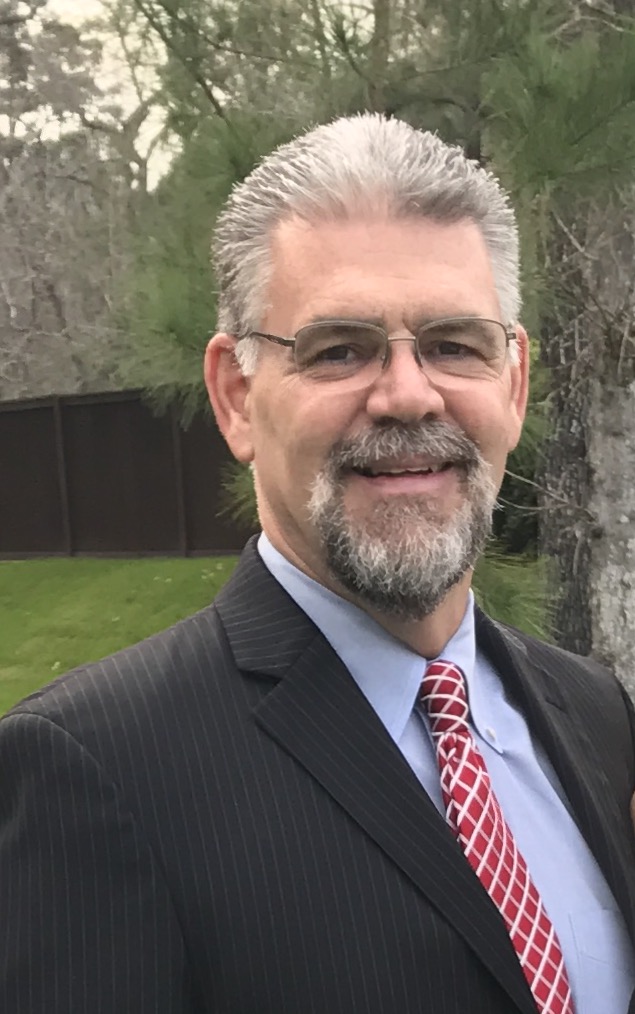 John Reese
John Reese
Downstream Policy & Advocacy Manager, Americas
Shell Oil Products US
Fuels for Tomorrow’s Transport
John E. Reese is Downstream Policy & Advocacy Manager, Americas with Shell Oil Products US, based in Houston. In that role, he manages Shell’s participation in policy debates that affect Shell’s downstream business in North America. Prior to joining Shell in 2002, he spent ten years as an attorney with the American Petroleum Institute in Washington, DC. While at API, Mr. Reese engaged in legislative and regulatory debates and litigation concerning a wide array of fuels issues and other downstream related issues. Mr. Reese has a law degree from Catholic University, a Masters of Arts degree from William & Mary, and a Bachelor of Science degree from George Mason University.
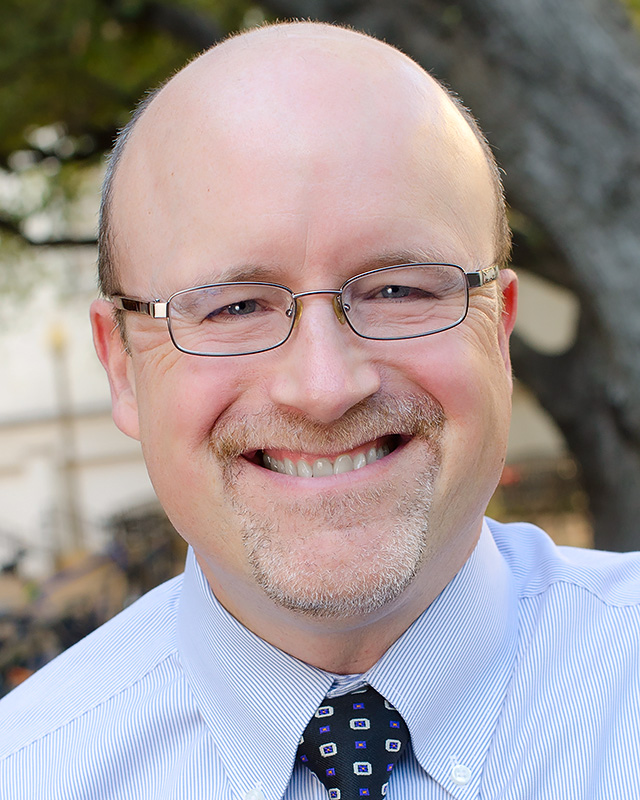 David Spence
David Spence
Baker Botts Chair in Law and Professor of Business, Government and Society
The University of Texas at Austin
Policy and Business Implications of a Green New Deal
David Spence is Baker Botts Chair in Law at the University of Texas School of Law, and Professor of Business Government & Society at the McCombs School of Business. Professor Spence is co-author of the leading energy law casebook, Energy, Economics and the Environment (Foundation Press), and has published numerous scholarly articles on subjects relating to energy policy, regulation and the regulatory process. Professor Spence’s research focuses on the law and politics of energy regulation, broadly defined. His scholarly writings address the environmental regulation of the oil and gas industry and the electric utility industry, as well as economic regulation (regulation of price and competition) in the public utility industry. He has Ph.D in political science from Duke University and a J.D. from the University of North Carolina.
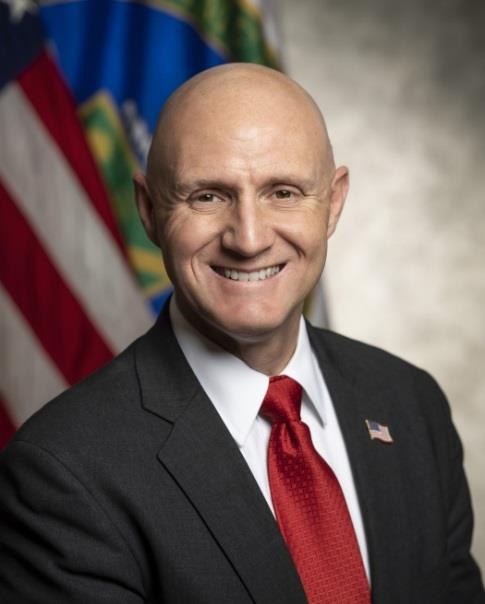 Daniel R. Simmons
Daniel R. Simmons
Assistant Secretary of Energy Efficiency and Renewable Energy at the Department of Energy
Lunch Keynote Address
In his role as the Assistant Secretary of Energy Efficiency and Renewable Energy (EERE) at the Department of Energy, Daniel R Simmons leads EERE to promote affordable and reliable energy to enhance America’s economic growth and energy security. Before joining the Department, Mr. Simmons served as the Institute for Energy Research’s Vice President for Policy, and previously held positions at the American Legislative Exchange Council and on the Committee on Resources of the U.S. House of Representatives. He is a graduate of Utah State University and George Mason University School of Law.
 John Thompson
John Thompson
PetraScience Consultants
Making Minerals Great Again
Since 2012, John has partnered in a consulting business based in Vancouver, BC, focused on exploration, mining and sustainability. From 2013-18 he was also the Wold Professor of Environmental Balance for Human Sustainability at Cornell University. John has over 35 years working in the mining industry and related research, and has held diverse leadership roles in many organizations – Teck Resources, Genome BC, the World Economic Forum, Resources for Future Generations 2018, Society of Economic Geologists, Geoscience BC, Canada Mining Innovation Council, and MDRU-UBC. He is a director and advisory board member for several exploration, technology, and venture capital companies, and not-for-profit organizations focused on resources and sustainability.
 Mark Vanderhelm
Mark Vanderhelm
Vice President of Energy and Facilities Maintenance
Walmart US
Keynote: Mark Vanderhelm, Vice President of Energy and Facilities Management at Walmart US
Joining Walmart in 2015, Mark Vanderhelm, now Vice President of Energy and Facilities Maintenance, leads the team supporting Walmart U.S., including competitive markets supply, regulatory, energy resilience and management, energy services and energy project and program design, development and implementation. He oversees the company’s US commitment to energy efficiency, renewable energy, and recycling. Beginning last year, Mark leads the US Facilities Maintenance organization in which he is transforming the organization through a new service delivery model and enabling finanical based decisions by leveraging IoT to digitize the retail asset. In Energy, Mark’s team has increased the capital deployed significantly over the last 4 years, building and implementing programs that have reduced energy usage and is on path to reduce energy spend by a net 15% over the next 3 years. In FM, Mark’s team has increased the capital deployed by 2.5x moving into next fiscal year and is on path to reduce spend by a net 25% over the next 3 years. Finally, Mark has been charged to monetize Walmart real estate through initiatives, such as connectivity, marketing, and enabling vehicle electrification which enhance the customer experience.
Mark joined the company from Exelon Generation, LLC in Pennsylvania, where he managed Generation and Renewables Development. In this role, Mark led the team responsible for developing new generation projects (gas, solar, biomass, storage and hydro) and investing in new electricity-based technologies throughout the U.S. and Canada. In previous roles, he led business development for the retail team, as well as the wholesale origination team focused on the Southern U.S. Throughout these roles, Mark directed due diligence and negotiation for key growth projects for the organization.
Mark holds a Bachelor’s Degree in Mechanical Engineering from University of Texas. He went on to earn a Master’s Degree and Doctorate in Nuclear Engineering from MIT, where he co-directed the Institute of Nuclear Power Operations’ Reactor Technology Course for Utility Executives.
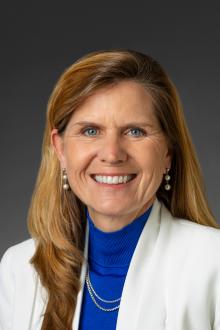 Diana Walters
Diana Walters
Board of Directors
Atmos Energy and Alta Mesa Resources
Making Minerals Great Again
Ms. Walters has over 27 years of experience in the natural resources sector, both as an investment banker and in operating roles. She is the former President of Liberty Metals & Mining, LLC and was a Managing Partner of Eland Capital, LLC, a Natural Resources advisory firm. Ms. Walters has extensive investment experience with both debt and equity through leadership roles at Credit Suisse, HSBC and other firms. Ms. Walters graduated with honors from the University of Texas at Austin with a BA in Plan II Liberal Arts and an MA in Energy and Mineral Resources.
 Andrew Waxman
Andrew Waxman
Assistant Professor of Economics and Public Policy
LBJ School of Public Affairs at the University of Texas at Austin
Policy and Business Implications of a Green New Deal
Andrew Waxman is an applied microeconomist examining the relationship between environmental outcomes, urban policies and inequality. Much of his work consists in trying to think about how household location decisions of place of work and residence have implications for levels of emissions from home electricity usage as well as from commuting using personal vehicles. The link between these sectors has important implications for the design of cities and for understanding the full effects of policies targeting housing or transportation. Waxman has also studied real-time pricing of congested freeways in Los Angeles and has worked on research exploring how public transportation capacity in cities affects the welfare of high- and low-skilled workers.
 Michael Wheeler
Michael Wheeler
Principal Strategist
Equinor
Energy Leadership: New Visions for a New Era
Michael Wheeler is a Principal Strategist at Equinor (formerly Statoil) in Houston, Texas. With over a decade of industry experience, he has held both technical and commercial positions linked to assets in oil, gas, and renewables. Michael holds a B.S. degree in petroleum engineering from the University of Texas at Austin as well as an MBA from Rice University. In his current role as a member of Equinor’s Corporate Strategy & Innovation organization, Michael manages strategic initiatives across various value chains, further positioning Equinor during the ongoing energy transition.
 Zifei Yang
Zifei Yang
Passenger Vehicles Program Lead
International Council on Clean Transportation
Fuels for Tomorrow’s Transport
Zifei Yang is the Passenger Vehicles Program Lead at ICCT. Her work is aimed at reducing air pollution and greenhouse gas emissions from passenger vehicles on a global scale. Her research focuses on assessing the potential fuel consumption and emissions reductions from light-duty vehicle technologies and identifying global best practices in regards to fuel efficiency standards, fiscal policies, labeling programs, electrification, and compliance and enforcement. Ms. Yang has supported national and local policy development throughout the world, including in ASEAN countries, China, India, Turkey, Peru, and the EU. She holds a Master of Public Administration from American University, as well as dual bachelor’s degrees in Public Administration and Economics from Xiamen University (China).
